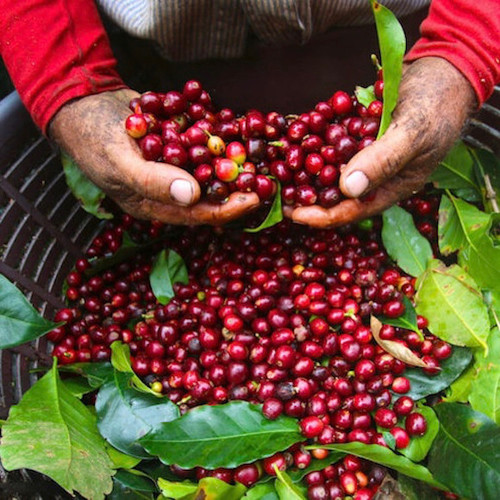Description
this blend brings the flavours of india to your cup, with sweet notes of caramel and brown sugar finishes with note of spice and vanilla.
IN THE BAG
Though India is known as a TEA drinking country, coffee production in the country actually predates tea. Records indicate that coffee first arrived in India in the 1600s, whereas tea did not arrive until more than 200 years later, in 1839.
The majority of coffee in India is grown on plots of land smaller than 10 hectares. The majority of production is still centered on the traditional growing regions of the SOUTH, however, coffee cultivation is now spreading across Northern areas.
Coffee is increasingly grown in the northeastern known as the 'Seven Sister’ states of Assam, Manipur, Meghalaya, Mizoram, Tripura, Nagaland and Arunachal Pradesh.
Coffee farms are typically situated between 700 and 1,200 meters above sea level. Most coffee cultivation is ‘traditional’ and two-tier shade canopies are mixed with leguminous, nitrogen-fixing trees. In this method, it is very common for coffee trees to be intercropped with spices (like vanilla or pepper) and fruit tree.
TIGER Mountain
A shade grown Arabica from the highlands of the Baba Budan region, believed to be the birthplace of Indian Coffee. It has an excellent body and a pleasant creamy dark cocoa finish.
This region is named after Baba Budan, a 17th century Sufi who smugggled coffee seeds out of Yemen to India, leading to global coffee cultivation.
SEVEN Sister States
Project Seven Sisters is a sourcing program that aims to showcase the exceptional coffee growing potential of the Northeast.
Despite the challenges posed by its remote location, the initiative seeks to highlight the unique flavors and attributes of the region's coffee, covering the states of Arunachal Pradesh, Nagaland, Manipur, Tripura, and Assam at present.











